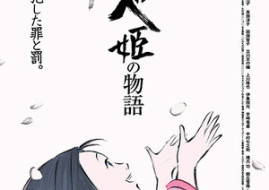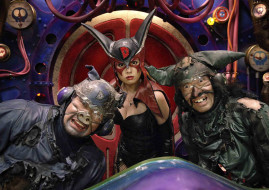Branded to Kill (1967)
[director Seijun Suzuki]
Seijun Suzuki didn’t aim very small on this one. He wasn’t dealing with acute little issues. No, Seijun went straight for the big ones here. This is a movie about life and death, and all the tension and competition in between. It’s great–probably Suzuki’s best movie, possibly one of the greatest movies of all time. A tongue-in-cheek send-up of what was even by then the old-and-venerable-hired-killer-movie, Branded to Kill is filled with great director Seijun Suzuki’s patent absurdity. Suzuki takes time and place for a ride as he details the story of Goro Hananda, the mob’s no.3 killer. In the beginning of the film he gets bumped up to no.2, and then he has to deal with the fallout after he looses this rank (a hit goes bad in the most surprising of ways). There’s a couple of extremely nihilistic women in Goro’s life, and he has a curious attraction to boiled rice.
Seijun Suzuki was a contract director for Nikkatsu studios, cranking out B-movies at a stunning rate. At the end of about 12 (?) years he had directed 38 (?) movies for Nikkatsu. He constantly fought against his uninspired studio bosses, who found his creativity intolerable. The last ten movies he made for Nikkatsu are among the most fiercely creative films of their time, hip and swinging pictures that often deal with interesting issues in extroardinarily novel ways. Before people like Guy Ritchie made hip and funky crime pictures, Seijun Suzuki was there. He practically made crime pictures hip. And funky.
They fired him for this one. The Nikkatsu bosses needed a fall guy to take the rap for the financial failure of their studio (but really, after ten years, crime-action movies and remakes of Rebel Without a Cause just weren’t catching the public’s interest anymore). So they went for Suzuki, claiming that he made pictures that no one understood and that made no money.
In fact, neither allegation was completely true. Suzuki had a large underground following that has only grown in recent years. After sueing Nikkatsu for unlawful dismissal (and winning) he spent a decade blackballed from the entertainment industry. In 1980 he made an incredible comeback with a movie called Zigeunerweizen (produced under really bizarre circumstances) and was suddenly a hot commodity once again. In 2001 he directed his 51st (?) feature, Pistol Opera. It is actually a sequel to Branded to Kill, with Goro Hananda as an old man, mentoring a young woman who becomes the no.3 killer. Good stuff.





















